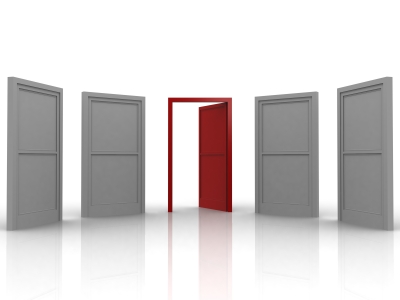Life is a sum of all your choices. – Albert Camus
How many times in the past week have you said or thought some version of this sentence?
“I’d love to do x, but I just don’t have enough y.”
Such as:
“I’d love to take a vacation, but I don’t have enough money.”
“I want to take better care of my health, but I just can’t find time.”
“I really want that promotion, but I don’t know how to ask for it.”
Really, how many times?
I’d suggest you count, and find out.
As humans, our brains are wired for fear and survival. It’s just the first place our brains go.
However, most of us aren’t actually being chased by angry neanderthals or fierce tigers anymore. Except in our minds.
Barring real deprivation, scarcity or hardship, the reality is that most of the time our lives are pretty abundant, full options and abundance. In fact it is likely that we are more often overwhelmed by too many options than too few!
Realizing that most of us have real choices is the first step out of feeling stuck.
If you’re wanting to find a way out of no way, try this:
1) Watch your “but”. In any problem, it’s likely that there are also some choices you have been making. You just may not be aware that you’ve actually made some type of decision.
When we use the word “but” in our sentences, it has the effect of canceling everything that comes before it. The focus then becomes solely on what comes after the “but” – which is usually exactly what we aren’t wanting or are feeling stuck around.
Replacing the “but” with “and” in the sentences above does this:
“I’d love to take a vacation, but I don’t have enough money”
becomes
I’d love to take a vacation AND I have other financial priorities I’m making.
“I want to take better care of my health, but I just can’t find time”
becomes
I want to prioritize my health AND I am making other choices with my time.
“I really want that promotion, but I don’t know how to ask for it”
becomes
I want a promotion AND I need to learn how to ask for it.
Try it and see what shifts for you when you AND instead of BUT.
2) Look for what you are learning.
In responding to any situation, we can go down the path of judger – automatic reactions, blame, win/lose orientation – or learner – being thoughtful in our choices, solution focused, win/win orientation.
When we react, blame, and focus on what is wrong with the situation or others, we tend to only make the situation worse. When we can find the choice, and what we can learn about ourselves or the situation, we can actually more easily find resonant and useful solutions.
Don’t get stuck about being stuck: we all get on the judger path at times. In fact in her book, “Change Your Questions, Change Your Life”, Marilee Adams states that we’re all recovering judgers (ain’t that the truth!).
Using tools and questions that help you shift to learner more quickly will help avoid a sense of being stuck or hopeless.
Your turn
In the Comments below, tell me what works for you to find a way out of no way?
Loved this post?
Then use the icons below to tweet it, share it on Facebook and send it to specific friends via email.
Editor’s note: This post was originally published in November 2013 and has been updated for content and relevancy.
Photo credit: iStock


 Before specializing as a professional coach in 2004, I spent more than a decade in leadership, management and program development for state and local government and non-profit organizations. Now I get to help leaders and teams have more clarity and ability to stand up for what's important in their work and in their organizations. Working with me, leaders and teams find more meaning and purpose, feel happier and more confident, navigate change and conflict, and work together better.
Before specializing as a professional coach in 2004, I spent more than a decade in leadership, management and program development for state and local government and non-profit organizations. Now I get to help leaders and teams have more clarity and ability to stand up for what's important in their work and in their organizations. Working with me, leaders and teams find more meaning and purpose, feel happier and more confident, navigate change and conflict, and work together better.
Being compassionate with myself really helps me to get unstuck and move forward. This means understanding my situation. using the And instead of the but opens understanding. Next, putting some structure around the way helps me move forward. Action planning with small doable tasks gets me going. Reflecting on those steps builds my confidence.
Great suggestions, Scott – understanding or awareness creates the opportunity for insight; structured action helps us experiment and try a new way; reflection helps us learn from the action. Rinse, and repeat! Thanks for your comment!